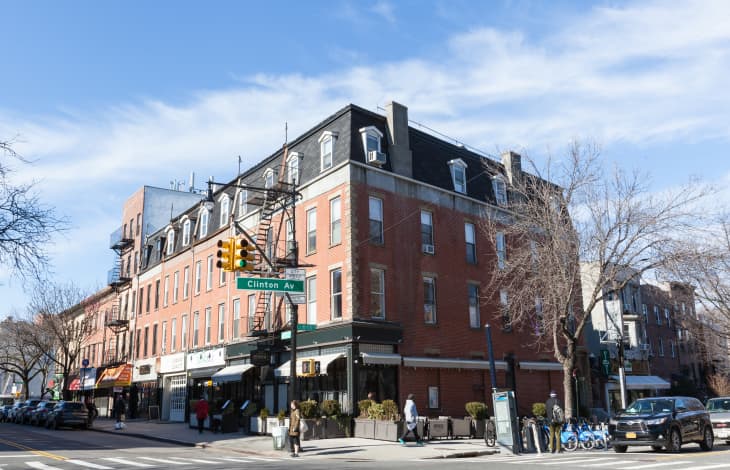The Majority of Renters Don’t Vote—Here’s Why
Feel like, as a renter, the world swings in favor of homeowners? Well, it just might. A new study byApartment Listfound that renters are vastly underrepresented in American politics on both the local and national levels. Though some of it is systematic, some also comes from being disengaged. In the 2016 presidential election, while 67 percent of homeowners voted, only 49 percent of renters did.
这将是令人担忧如果租房者大大较少numbered people living in owner-occupied housing (homeowners, their families, and the other gaggle of people that live with them)—but Apartment List says that homeowners and other non-renters make up 69.8 percent of the eligible voting population. So since renters make up 30.2 percent of the eligible voting population (i.e. 18+ year-old citizens) and fewer than half of renters voted, they really only count for 24 percent of the total votes. That means homeowners (and the people they live with) far and away carry elections, and end up having 76 percent of the say.
Why are homeowners so politically active? Well, the folks at Apartment List posit that homeowners see voting as an action that directly affects their pocketbooks. Since homeowners want to keep their property values high (or even raise them), they’re more likely to want to vote into office someone who will vouch for them on local zoning issues. For example, homeowners might want to limit new construction and will vote for a candidate that will do that for them—even though this directly affects renters by raising rents. As clichéd as it is, the squeaky wheel gets the grease. If homeowners are the only ones advocating for themselves in these issues, they’re likely to get the benefits when decisions are made.
So why don’t renters vote? Well, some of it could be apathy. It could feel like voting doesn’t affect them that much directly—and that they’re destined to be at the whim of homeowners and landlords, anyway. But another reason is that it’s wholly harder for renters to get to the polls. For one, renters move more often than those with a 30-year mortgage, so maintaining a valid voter registration status is more difficult. They are also more likely to work hourly jobs, which tend to be less flexible than salaried jobs. Therefore it’s not only harder to get off work, it’s also harder to make up the lost wages. Additionally, because renters are more likely to be a part of a racial minority (45 percent of renters are in a racial minority compared to 75 percent of homeowners being white), they also may be the target of voter suppression tactics. Additionally non-citizen residents are more likely to be renters, and therefore can’t add their voice to the mix through voting.
Though the numbers may be against renters, that doesn’t mean their votes don’t have the power to sway an election. Because renters are significantly more likely to vote Democratic, if they had equal turnout to homeowners, they would have swung the 2016 by turning Florida, Michigan, Pennsylvania, and Wisconsin blue, according to the study.
So yes, even if it’s not going to directly affect your investments, voting as a renterdoesgreatly affect you. If you feel like your needs as a renter aren’t being met—an easy thing you can do is, well, vote!

